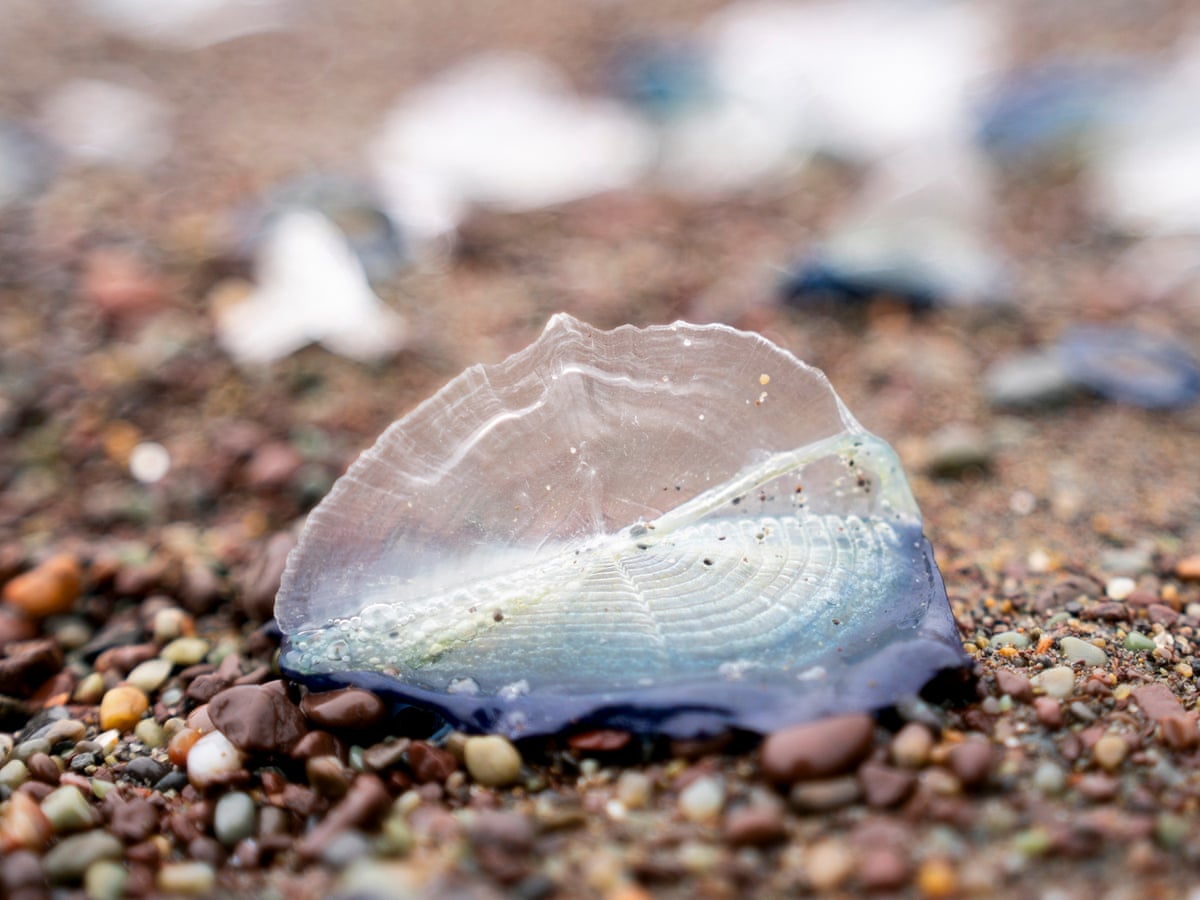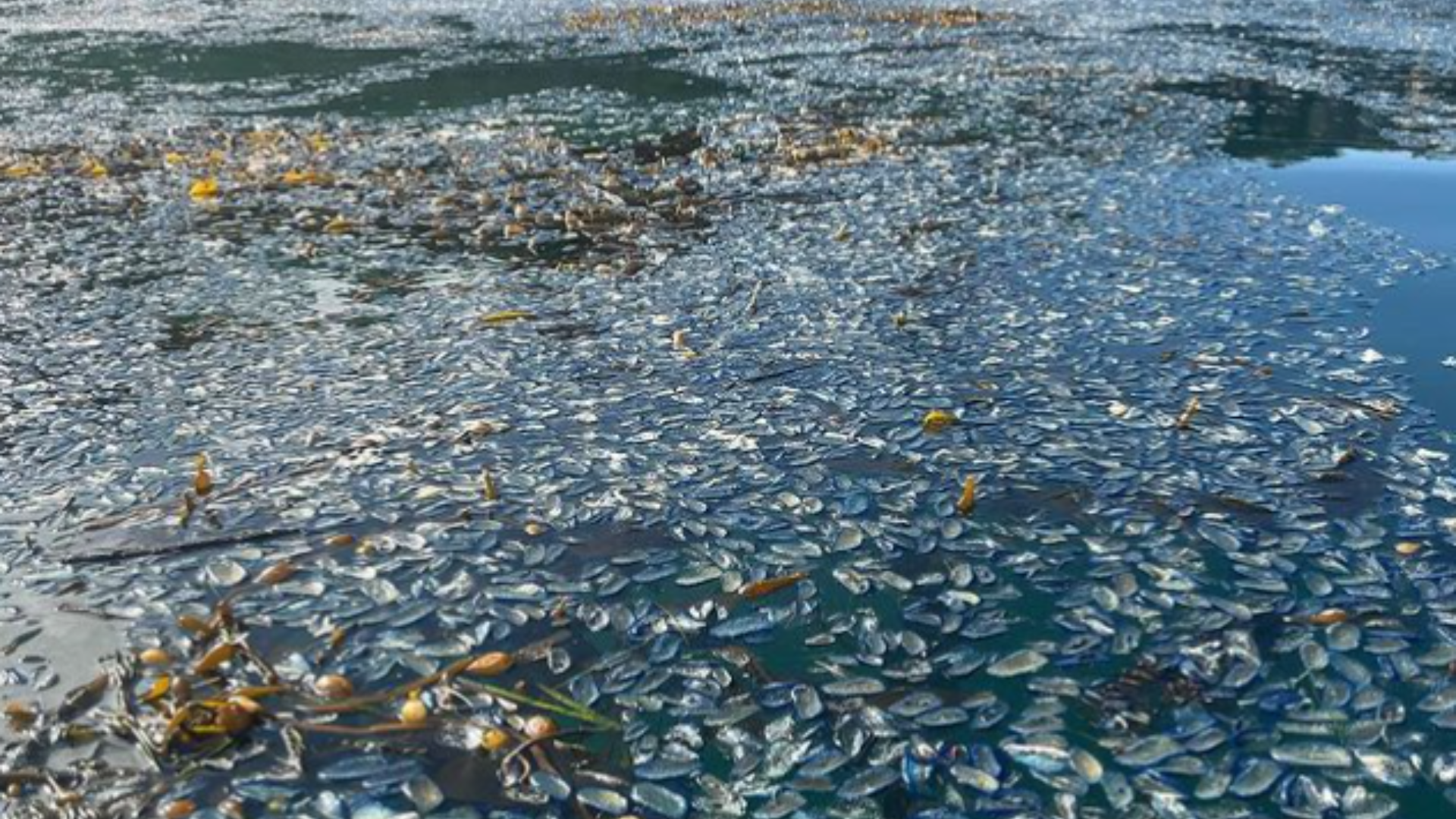An extraordinary phenomenon is captivating beachgoers along the West Coast of the United States, as millions of tiny, blue, alien-looking creatures known as Velella velella, or “by-the-wind sailors,” are washing up on shores from Oregon to California, as reported by The Guardian.

Velella velella, resembling small, sailboat-like creatures, are not individual animals but rather colonies of hydrozoans. These remarkable organisms utilize a sail-like fin to catch the wind, allowing them to drift across the ocean currents. While their appearance might be surprising, this “blue tide” is a natural occurrence that happens intermittently.
The creatures spend the majority of their lives at sea, using their tentacles to capture food as they drift along with the currents. Although harmless to humans, their stings can pose discomfort to fish larvae and zooplankton, according to reports.
View this post on Instagram
Their striking blue hue serves multiple purposes. It may aid in their camouflage from predators such as the ocean sunfish or act as a form of natural protection against the sun’s harsh UV rays. Researchers are still unraveling the mysteries behind this vibrant coloration.
Velella velella undertake extensive journeys across the Pacific Ocean, following a route that takes them down the California coast, then out towards Asia before returning. Their populations experience cycles of growth and decline during these voyages, heavily influenced by the availability of food. When food sources are plentiful, their numbers surge, resulting in large-scale beachings like the current one.

Marine biologist Julia Parrish from the University of Washington explains that Velella live for months and traverse the Pacific gyre extensively. Throughout their journey, they go through various life stages, each distinct from the others, contributing to their boom-and-bust cycles.
While the sight of millions of blue creatures might seem unusual, it serves as a poignant reminder of the remarkable wonders and intricate ecosystems present in our oceans.






















